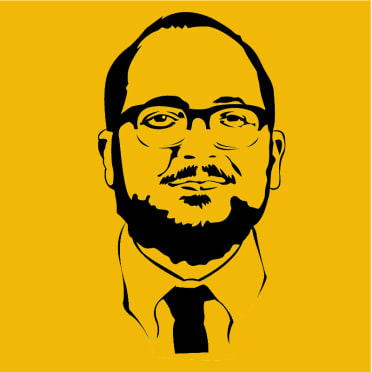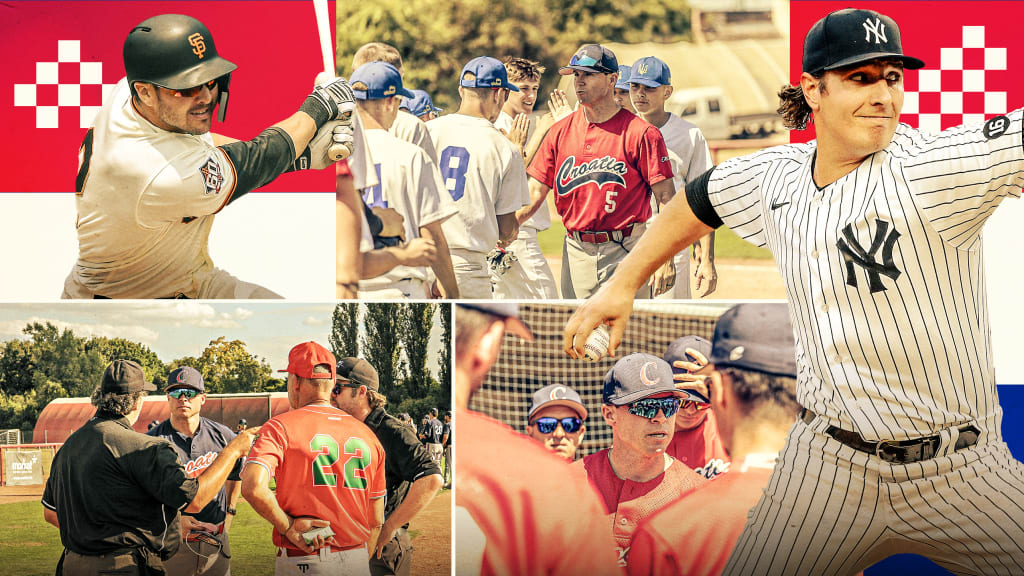
Luke Salas looked out over the ballfield in Budapest, Hungary, last summer and couldn't believe where baseball had taken him. The former Pepperdine University player, who spent a year in the Texas Rangers organization, had always been interested in international baseball, but now found himself the manager for Croatia's team at the U-23 European Championship qualifiers.
"This wasn't something I had on my bucket list, like 'I want to manage a national team,'" Salas told MLB.com over Zoom recently. "If you'd asked me last year, when I got home in August, I honestly was having my cake and eating it, too. I was like, 'This is the most amazing experience. If this is where it ends, I'm pretty content with that.'"
Though Salas' ballclub failed to win the qualifier, finishing 1-3, that was only the beginning. Forget just the youth team: Salas has been named the manager for Croatia's senior national team and will be skippering them at this autumn's European Championship. He'll be bringing with him a wealth of Major League talent, too.
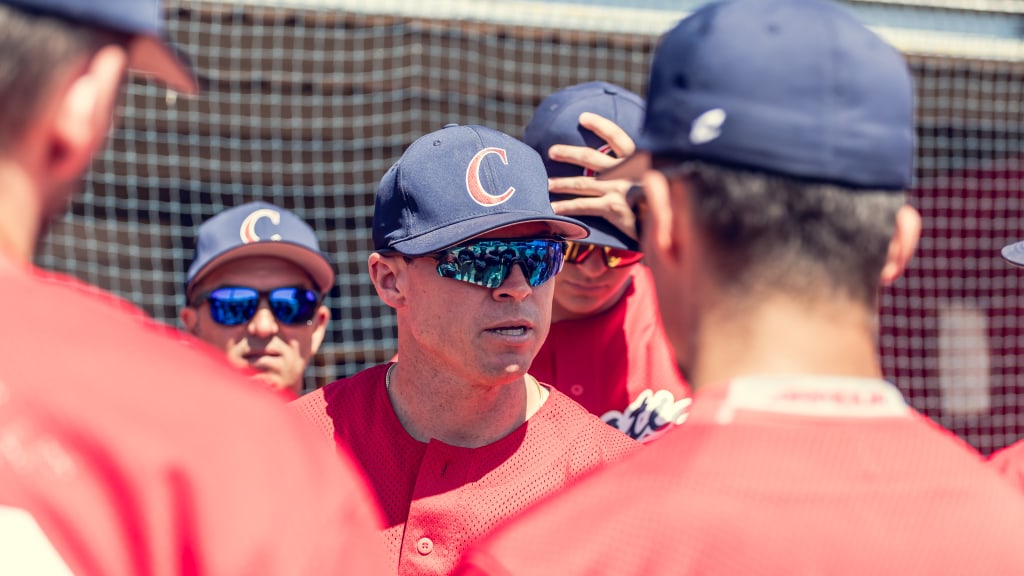
Though Salas may not have foreseen this future, he's been working toward this outcome for more than a decade. A Cuban-American from Miami -- his father fled Havana after Fidel Castro rose to power -- Salas had previously attempted to become the first American to play in the Cuban leagues since the 1960s before the idea eventually got shut down by the U.S. State Department.
Though the experience was stressful, it didn't stop Salas from dreaming big. Soon after, he founded Baseball For Good, a non-profit organization that aims to, as Salas said, "find strategic ways to grow the game." They helped build a field in Ukraine in 2015 and endeavored to get bats, balls and other equipment to places where it's otherwise hard to find.
That led to its most ambitious plan, which is to connect players interested in coaching to places that are in desperate need of it.
"Without consistent coaches, kids don't play, and we started seeing this fall off rate of participation," Salas said.
So, he dreamed up the ambassador program, which is "basically the Peace Corps model for baseball."
"We recognize that the United States is blessed with not just amazing talent, but a plethora of players that want to continue and transition to coaching," Salas said. "One of the biggest issues that guys here in the States have when their playing careers end is building a resume that translates into coaching. Just because you played big league baseball, just because you played college baseball, doesn't mean that you automatically get that job."
When Salas made his pitch at the European baseball congress two years ago, Croatia was the one nation that raised its hand and wanted to take part. So, five American coaches came to the nation last summer to begin this pilot program.
"The key criteria that we use to evaluate is hunger," Salas said. "Does a country have hunger to invest and take the best of what they have, regardless of how limited it might be, and put themselves on a trajectory of trying to be the best? Croatia checked off all the boxes."
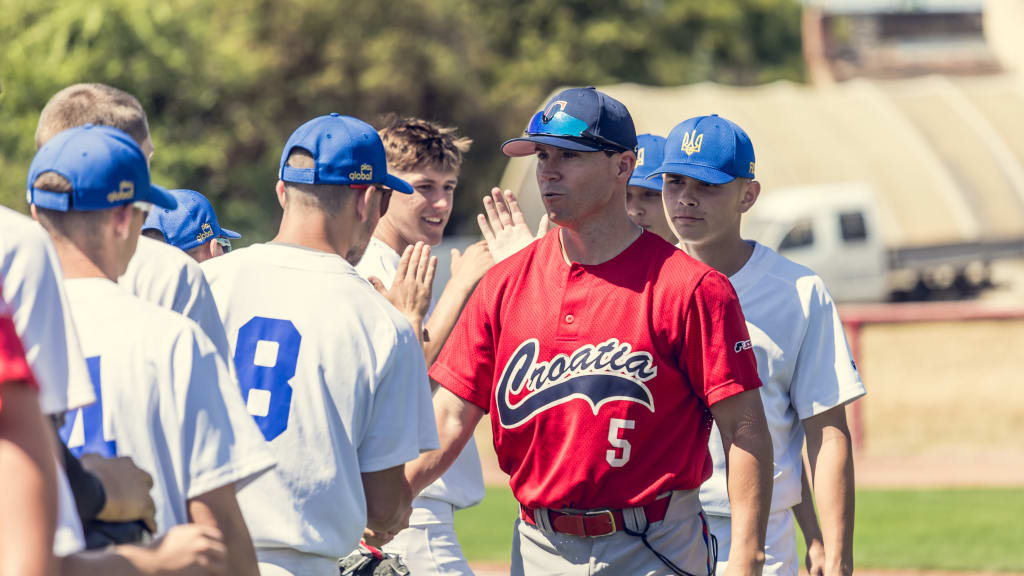
Behind Salas as the team's skipper, Asher Wojciechowski, who pitched 202 big league innings for four teams, will be taking over as the team's pitching coach. The strapping right-hander and former first-round Draft pick out of The Citadel, was just 9 years old when his family moved to Romania. He knows the struggles of playing a sport in a country where it seems nonexistent.
"When I was a kid living in Romania, I thought I'd never play baseball again," Wojciechowski said. "When we moved there, I wanted to be a big leaguer. And one of those years I was presented with the opportunity to play for the Romanian national team, and that was a springboard for me as an 11-year-old to be able to be like, 'No, I can be in Romania and still play baseball and still pursue this dream to be a big leaguer.'"
Wojciechowski will be looking to implement a pro-level throwing program, something that the players can follow whether he's there in the country or checking in remotely from back in the United States.
"[I want] to be able to give them a professional program, a process that that has worked and that I've done years of training with," Wojciechowski said. "To supply that to the youth, supply that to the players over there, to where they have a great template to go by and then we can make adjustments accordingly."
Chase d'Arnaud, who was also a teammate of Salas' at Pepperdine, will be joining as an infield instructor and base coach. A super-utility player who lined up at every position except for catcher during his big leaguer career, d'Arnaud may be joining with one specific job title, but he has a wide breadth of knowledge he's looking to share.
"I'm excited to grow the game in another country," d'Arnaud said. "I can stay in my lane and focus on the base running and the field work, but also have value to give on other aspects of the game. We have such a capable coaching staff that Luke's assembled, and we want to do it the most collaborative way possible. [We want to] meet the players where they're currently at on a developmental level and help them improve any way that we can with the knowledge that we have."
The big league talent doesn't end there: Steve Rodriguez, who played in the Majors in 1995 and is the current University of Texas hitting coach, and Zach Vincej, who saw Major League time with the Mariners and Reds before becoming Baseball America's 2024 Minor League Manager of the Year, will also be joining the coaching staff.
It's rare to see this much experience and talent come together for a team at Croatia's current level, which could be one of the concerns: Turning Croatia into a competitor is a long-term plan. This isn't something they can do for a year or two and then leave behind.
"It's sexy to talk about European Championships and the World Baseball Classic and the Olympics in '28, but we would be missing such a vital opportunity to be able to strengthen and integrate at all the different levels of Croatian baseball." Salas said. "At the fundamental level, this is about youth. If we can achieve the levels that we think we can achieve at the national level, then we know we will inspire kids to want to wear our uniform, to want to wear our hat backwards, to want to start dedicating the time, the effort and the commitment to pursue baseball."
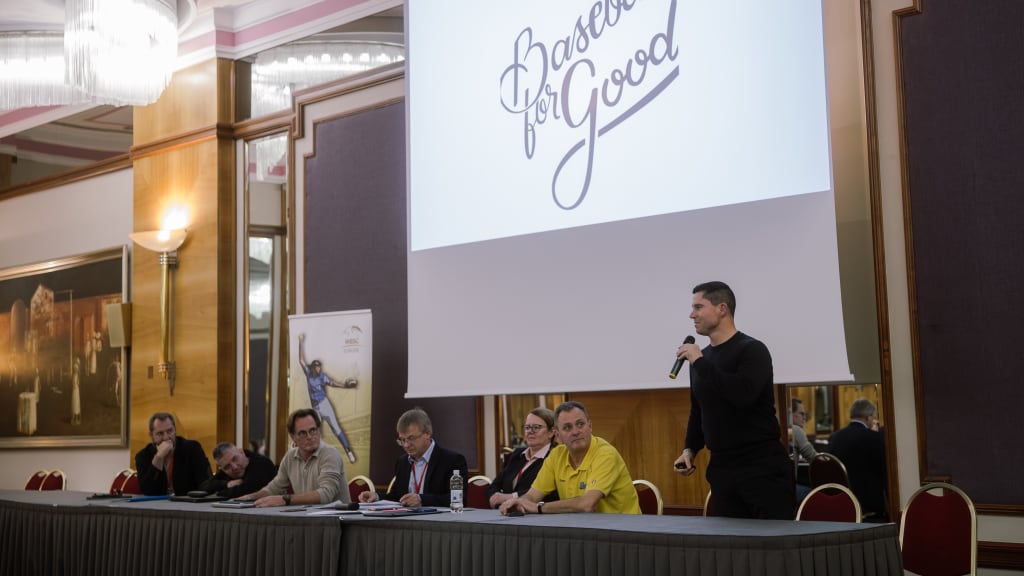
While some of the coaching will be done remotely, much of the staff will be heading overseas soon to get the boots on the ground, to meet the team and begin the arduous work of transforming a baseball program.
"I can't wait to for that first practice, when we're all there and we'll tell them about our history," d'Arnaud said. "But [I also can't wait] to hear more about them and where they are, because I want them to feel comfortable and not feel nervous by any means. I want them to be authentically themselves, and then once we get a really good feel for where they are, we'll know what approach to take to help them improve."
The project doesn't end at Croatia's borders: Despite their commitment to the national team, Baseball for Good's Ambassador program will grow this year to include Wojciechowski's old home of Romania. The vision is to help spread the game to as many people as possible.
"We're bringing hope and desire and access to kids that love the game or want to play the game," Wojciechowski said. "Giving them that opportunity is why I'm doing this."
"Absolutely everything that we're doing is designed to start with us and then trickle down at every single level," Salas said. "It's not our identity, it's helping Croatia form their identity within the game of baseball and then elevating that to the best of our potential."

